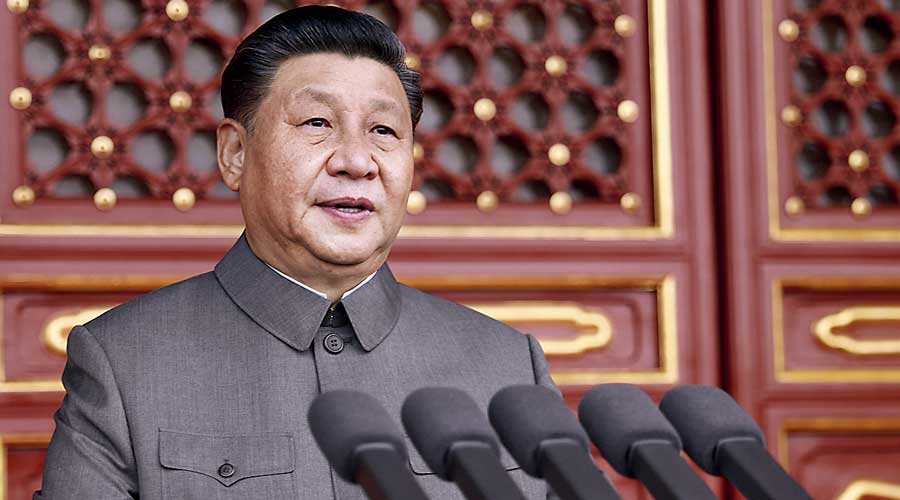From China’s perspective, the blows from the US just keep coming. Sanctions and export controls over the crackdown in Xinjiang. A warning to international businesses about the deteriorating climate in Hong Kong. The rejection of visas for students and researchers suspected of having links to the People’s Liberation Army.
Now the US has rallied a broad array of nations to accuse the Chinese ministry of state security not only of cyberspying but also of hacking for profit and intrigue.
The torrent of attacks has infuriated Beijing, but six months into the tenure of President Biden, the Communist Party leadership has yet to find an effective strategy to counter the American moves.
In Beijing’s view, Biden has taken a more strategic approach than his predecessor, enlisting allies to join his campaign against Chinese behaviour in ways that appear to have frustrated officials. China has resorted to its usual instinct for tit-for-tat measures, while lashing out with a heavy dose of vitriol and sarcasm.
Although both sides have said that they want to avoid a new Cold War, they are plunging into an increasingly ideological conflict that shows little sign of easing. The result has been a deterioration of relations that, to the surprise of many in Beijing, has surpassed even the four tumultuous years of dealing with President Donald J. Trump.
“The United States has declared its comeback, but the world has changed,” Le Yucheng, a vice minister of foreign affairs, said in a recent interview with the nationalistic news site Guancha.cn, echoing a Biden administration catchphrase. “The United States needs to see these changes, adapt to them, and reflect upon and correct its mistakes in the past.”
It is not clear whether the Chinese leader, Xi Jinping, has formally signalled a change in foreign policy strategy, but judging from public statements and actions in recent weeks, patience with the Biden administration has worn thin.
China has retaliated against American and European sanctions over China’s political repression in Hong Kong and Xinjiang with sanctions of its own. It has reined in the public offerings of Chinese companies on American stock exchanges. And it has stepped up military activity in the South China Sea and in the water and air around Taiwan in response to a more visceral American policy of support for the island democracy under Biden.
The quickening tempo of military operations increases the chances of armed confrontation — even if accidental. The incendiary language emanating from some officials and state media in China would make climbing down even more difficult, given a nationalistic mood at home.
Xi used a speech on July 1 celebrating the 100th anniversary of the founding of the Communist Party of China to warn that anyone who challenged the country’s sovereignty would “crack their heads and spill blood on the Great Wall of steel built from the flesh and blood of 1.4 billion Chinese people”.
Shi Yinhong, a professor of international relations at Renmin University in Beijing, said, “The Chinese government realises very clearly up until now the pressure and unprecedented challenges that China faces in the world.”
“The problem is they know that to change this means that China has to change its fundamental policy, which is firmly deemed by the Chinese leaders as not possible, or at least not worth it,” he added.
Tensions have been mounting since the top diplomats from the two sides met in Alaska in March. Those meetings opened with an extraordinarily rancorous exchange about the issues that divide them.
A looming deadline and a last-minute need for a new revenue source complicate infrastructure negotiations.
Biden’s special envoy on climate change, John Kerry, followed up with a visit to Shanghai in April, but a joint statement pledging to reduce emissions included no new efforts to work together.
Since then, cooperation on any issue has been scarce.
New York Times News Service










